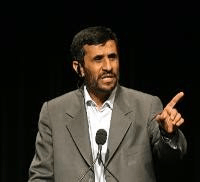As massive protests shook Iran in June 2009 following President Mahmoud Ahmadinejad's widely contested re-election, Arab leaders around the region watched the unfolding events with a mix of wariness and satisfaction. Unnerved by the Obama administration's overtures of rapprochement with the Islamic Republic, many had a keen sense that Iran would emerge from the crisis weakened and more isolated internationally. They were largely correct.
Some two years later, it is the Iranians who are closely following the slew of uprisings -- and violent crackdowns -- that have rocked the Arab world. While initially reticent to weigh in, Tehran could not remain tight-lipped as the contagion of protest spread throughout the region, especially in light of its own suppression of the Green opposition movement. It has thus sought to frame the events as part of a larger "Islamic awakening." Few are convinced.
But while the regional upheaval has naturally alarmed the Iranian leadership and even inspired the largest opposition protests Tehran has seen in more than a year, the Arab Spring has also offered Iran strategic gains. In Egypt, former President Hosni Mubarak, who was once quoted as having a "visceral hatred" for the Islamic Republic, is no longer a thorn in the mullahs' side. Indeed, Tehran and Cairo have seen a thawing in relations since Mubarak's ouster, with Egypt even allowing two Iranian warships passage through the Suez Canal for the first time since 1979. Further, any growing détente between the two is of great concern to Israel, the Islamic Republic's arch-enemy, and would severely undermine the Jewish state's attempts to isolate Iran.

